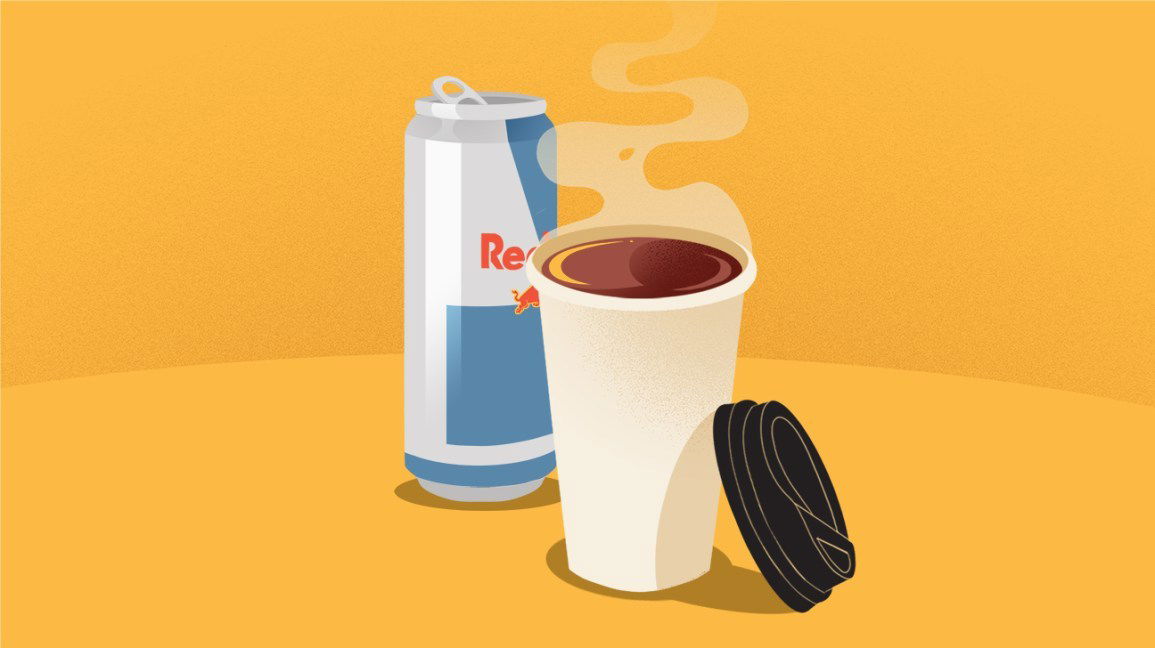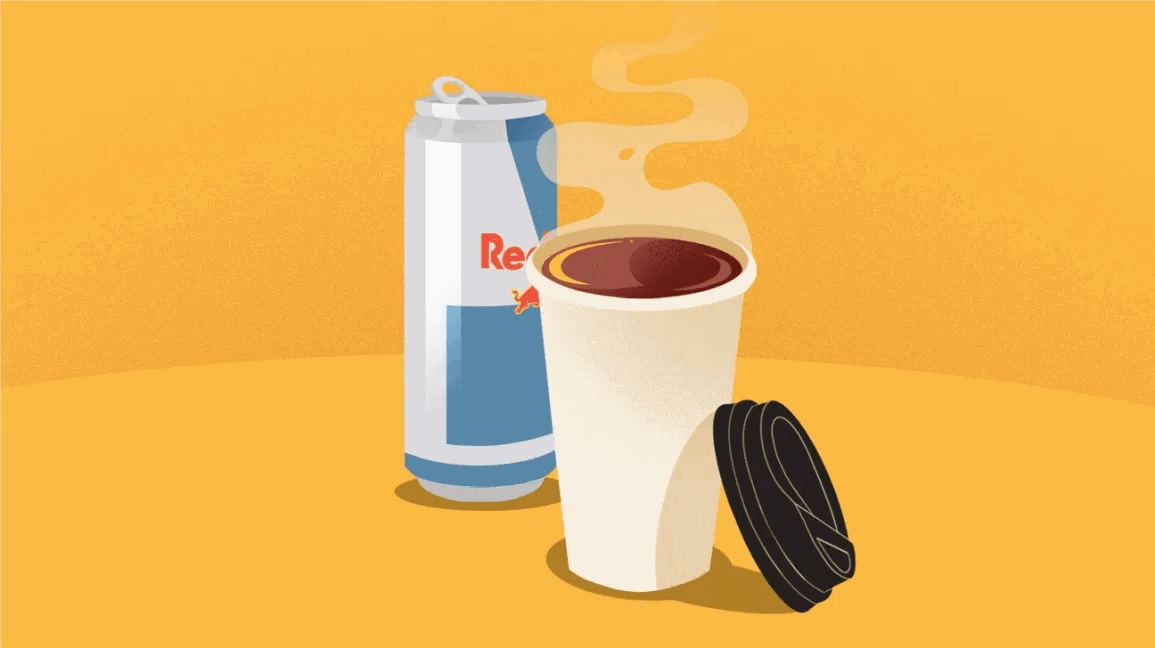Red Bull vs. Coffee: How Do They Compare?

Red Bull vs. Coffee: How Do They Compare?
 Written by Gavin Van De Walle, MS, RD on March 31, 2020
Written by Gavin Van De Walle, MS, RD on March 31, 2020
Caffeine is the most widely consumed stimulant in the world.
While many people turn to coffee for their caffeine fix, others prefer an energy drink like Red Bull.
You may wonder how these popular drinks compare, both in terms of caffeine content and health effects.
This article explains the differences between Red Bull and coffee.
 Share on Pinterest
Share on PinterestNutrient comparison
The nutrition contents of Red Bull and coffee vary significantly.
Red Bull
This energy drink comes in numerous flavors, including original and sugar-free, as well as several sizes.
One standard, 8.4-ounce (248-mL) can of regular Red Bull provides:
- Calories: 112
- Protein: 1 gram
- Sugar: 27 grams
- Magnesium: 12% of the Daily Value (DV)
- Thiamine: 9% of the DV
- Riboflavin: 21% of the DV
- Niacin: 160% of the DV
- Vitamin B6: 331% of the DV
- Vitamin B12: 213% of the DV
Sugar-free Red Bull differs in calorie and sugar content, as well as its levels of certain vitamins and minerals. One 8.4-ounce (248-mL) can delivers :
- Calories: 13
- Protein: 1 gram
- Carbs: 2 grams
- Magnesium: 2% of the DV
- Thiamine: 5% of the DV
- Riboflavin: 112% of the DV
- Niacin: 134% of the DV
- Vitamin B6: 296% of the DV
- Vitamin B12: 209% of the DV
Sugar-free Red Bull is sweetened with the artificial sweeteners aspartame and acesulfame K.
Both the regular and sugar-free varieties contain taurine, an amino acid that may boost exercise performance (3Trusted Source).
Coffee
Coffee is produced from roasted coffee beans.
One cup (240 mL) of brewed black coffee contains 2 calories and trace amounts of minerals, including 14% of the DV for riboflavin. This vitamin is necessary for energy production and normal cell function.
Coffee also boasts polyphenol antioxidants, which combat oxidative stress in your body and may reduce your risk of several diseases.
Remember that milk, cream, sugar, and other add-ins affect the nutritional value and calorie count of your cup of joe.
SUMMARYRed Bull packs a significant amount of B vitamins, whereas coffee has antioxidants and is almost calorie-free.
Caffeine content
Caffeine acts on the nervous system to increase energy, alertness, and brain function.
Coffee and Red Bull offer similar amounts of this stimulant per serving, though coffee has a little more.
Regular and sugar-free Red Bull contain 75–80 mg of caffeine per 8.4-ounce (248-mL) can.
Meanwhile, coffee packs around 96 mg per cup (240 mL).
That said, the amount of caffeine in coffee is affected by several factors, including the type of coffee bean, roasting style, and serving size.
Studies suggest that healthy adults can safely consume up to 400 mg of caffeine per day, which is equivalent to approximately 4 cups (945 mL) of coffee or 5 regular cans (42 ounces or 1.2 liters) of Red Bull .
Pregnant women are advised to consume no more than 200–300 mg of caffeine per day, depending on the health agency. This amount is equivalent to 2–3 cups (475–710 mL) of coffee or 2–3.5 cans (16.8–29.4 ounces or 496–868 mL) of Red Bull.
SUMMARYCoffee and Red Bull contain comparable amounts of caffeine per serving, although coffee generally boasts a bit more.
Effects of Red Bull on health
Significant controversy surrounds the health effects of energy drinks like Red Bull, particularly among teenagers and young adults.
Studies demonstrate that Red Bull significantly increases blood pressure and heart rate, particularly in those who don’t regularly consume caffeine.
Although these increases tend to be short lived, they may raise your risk of future heart problems if you have an underlying heart condition or drink Red Bull regularly or in exceses.
The original variety also harbors added sugar, which ups your risk of heart disease and type 2 diabetes if you consume too much. in the UK it is (less than) <10% of you daily reference intakes.
The American Heart Association (AHA) recommends that men and women consume no more than 9 teaspoons (36 grams) and 6 teaspoons (25 grams) of added sugar per day, respectively (15).
For comparison, a single 8.4-ounce (248-mL) can of Red Bull packs 27 grams of added sugar — 75% of the daily limit for men and 108% for women (1Trusted Source).
However, occasional Red Bull intake is likely safe. Owing primarily to its caffeine content, it can boost energy, focus, and exercise performance (16Trusted Source, 17Trusted Source).
SUMMARYRed Bull has been shown to briefly increase blood pressure and heart rate, but it can boost focus and exercise performance when drunk in moderation.